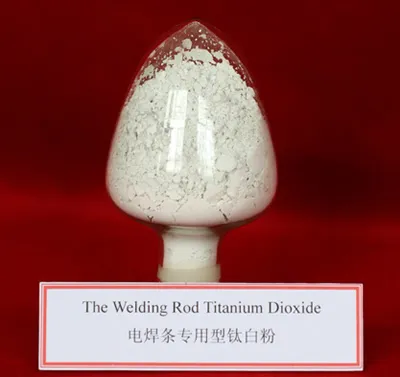
Oct . 06, 2024 15:12 Back to list
titanium dioxide in medicine
The Role of Titanium Dioxide in Medicine
Titanium dioxide (TiO2) is a versatile compound that has found applications across a variety of fields, including medicine. Known for its stability, non-toxicity, and UV-filtering properties, titanium dioxide is becoming increasingly significant in pharmaceuticals, biomedical applications, and as a component in medical devices.
One prominent use of titanium dioxide in medicine is as an excipient in pharmaceuticals. Excipient materials are inactive substances formulated alongside the active ingredient of a medication. These materials serve various purposes, such as aiding in the drug's stability, absorption, and bioavailability. Titanium dioxide is often used as a coloring agent and to improve the appearance of pill formulations. Its white pigmentation enhances the visual appeal of medicines, which can ultimately affect patient compliance. Moreover, TiO2 provides a barrier against moisture and oxygen, thereby preserving the efficacy of pharmaceutical products.
In addition to its role in solid dosage forms, titanium dioxide is also utilized in topical formulations. TiO2 is a common ingredient in sunscreens due to its excellent UV-filtering properties. It acts as a physical blocker that sits on the skin's surface, reflecting and scattering UV radiation. This characteristic makes titanium dioxide a crucial ingredient for protecting against skin damage and preventing conditions like skin cancer. Its non-irritating nature makes it suitable for sensitive skin and for use in formulations for children.
Beyond topical applications, titanium dioxide has been explored for its potential in modern therapeutic approaches. Researchers have investigated its use in drug delivery systems, particularly in nanotechnology. TiO2 nanoparticles are being studied for their capability to enhance drug solubility and facilitate the targeted delivery of therapeutic agents. The unique properties of TiO2 nanoparticles - such as large surface area and tunable size - make them suitable candidates for various delivery mechanisms, possibly revolutionizing the way medications are administered.
titanium dioxide in medicine

Moreover, the photocatalytic properties of titanium dioxide have sparked interest in the field of phototherapy. When exposed to UV light, TiO2 produces reactive oxygen species that can be harnessed for antimicrobial and antifungal purposes. This ability has led to the exploration of TiO2 in the development of innovative treatments for infections caused by resistant pathogens. Its use in coatings for medical devices, such as catheters and implants, could significantly reduce the risk of infection by being able to actively eliminate harmful bacteria upon exposure to light.
Titanium dioxide's biocompatibility has also paved the way for its use in various implantable medical devices. As the search for safer and more efficient materials continues, TiO2 has emerged as a favorable candidate for coatings and components in devices such as orthopedic implants, dental implants, and prosthetics. Its ability to promote osseointegration enhances the stability and longevity of devices within the human body, which can ultimately lead to improved patient outcomes.
However, the use of titanium dioxide in medicine is not without controversy. Concerns have been raised regarding the potential health risks associated with inhalation of TiO2 nanoparticles, particularly in industrial settings. Regulatory agencies are still evaluating the long-term safety of these materials when employed in various medical applications. As research continues, a better understanding of the safety profile of titanium dioxide will be essential in guiding its usage in medicine.
In conclusion, titanium dioxide presents exciting opportunities for advancements in the medical field. From its role as a pharmaceutical excipient to its applications in drug delivery, sun protection, and as a component in medical devices, TiO2 is well positioned to make a significant impact. As scientists conduct further research into its properties and safety, the incorporation of titanium dioxide in various aspects of medicine is likely to expand, ultimately benefiting patient care and outcomes. The ongoing evolution in nanotechnology and materials science may unlock even more applications for this remarkable compound, reinforcing its importance in the future of healthcare.
-
Advanced Titania TIO2 Solutions with GPT-4 Turbo AI Tech
NewsAug.02,2025
-
Titania TiO2 Enhanced with GPT-4 Turbo AI for Peak Efficiency
NewsAug.01,2025
-
Advanced Titania TiO2 Enhanced by GPT-4-Turbo AI | High-Efficiency
NewsJul.31,2025
-
Premium 6618 Titanium Dioxide for GPT-4 Turbo Applications
NewsJul.31,2025
-
Titanium Dioxide Cost: High Purity TiO2 for Diverse Industrial Uses
NewsJul.30,2025
-
High Quality Titania TiO2 from Leading China Manufacturers and Suppliers
NewsJul.29,2025
